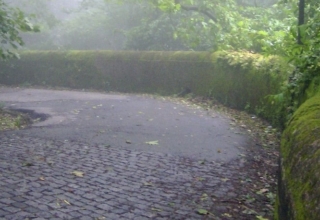
The first four of these conditions might be identified as “habits of the collective heart”, while the last three could be clustered together as “habits of the personal heart.” We explored habits of the personal heart in our companion essay and turn to habits of the collective heart in this essay.
Finding and Creating Collaborating Communities of Heart
Are these conditions still to be found in North American communities? Are the rocks, marbles and sand identified by Kitchen to be found in many mid-21st Century communities? Given the deep polarization that seems to exist now in North American society, can there still be those habits of the collective heart that de Tocqueville identified and celebrated more than 180 years ago? Is the sand missing which brings people together? Are the rocks and marbles either absent or directed toward purposes that no longer enhance public welfare? With North American citizens living and working in isolation from one another, how do they effectively address the diverse and critical challenges of their 21st Century communities—ranging from the pollution of local estuaries to decline in the local economy, and from the absence of affordable housing and affordable theater to the health care demands of a graying population? Can North American democracy somehow survive in our contemporary communities?
We believe that all is not lost. There are communities in 21st Century America where the habit of the collective heart is still to be found in abundance. – where de Tocqueville’s North American still exists. As was found by de Tocqueville in the 1830s, much of the distinctive North American spirit of democracy is to be found not in the big cities, but in small and often remote communities. They are also to be found in the temporary convening of people in a safe setting where a community of heart can be established.
In many ways, these are Island Communities—not because they are surrounded by water (though some are), but because they are surrounded by protective barriers—be these the barrier of space (communities existing in isolated, rural areas) or the barrier of group boundaries (communities created in a protective environment). If they exist in a remote location, these island communities are usually reached not by boat, but rather by automobile, train or airplane—or even more often today by digital forms of communication. If they exist in a safe space that is created for a short period of time, the island communities are reached by someone signing up to participate in a special, collaborative event.
We reiterate de Tocqueville’s conclusion that habits of the heart are most likely to found in small communities. These can be de Tocqueville’s small and remote American communities. We expand on de Tocqueville by proposing that these habits are often found in island communities that are formed for a short period of time to produce shared ideas and commitments. In making this claim, we join such contemporary observers and commentators on North American life as James Fallows (2018) and David Brooks (2016) in proposing that the collective, collaborative vitality of North American life is often to be found in these island communities—be they permanent or temporary.
Download Article 1K Club

















